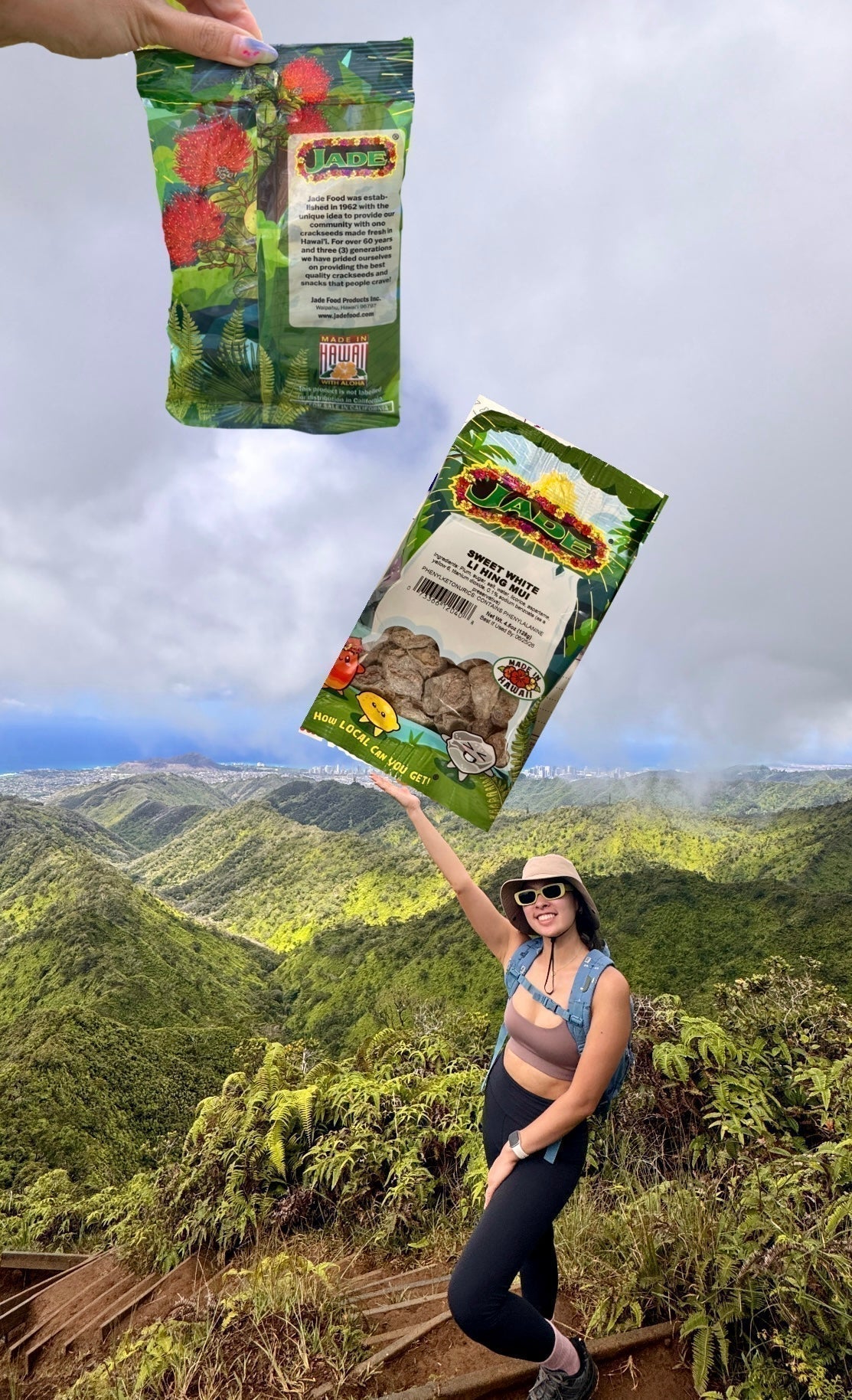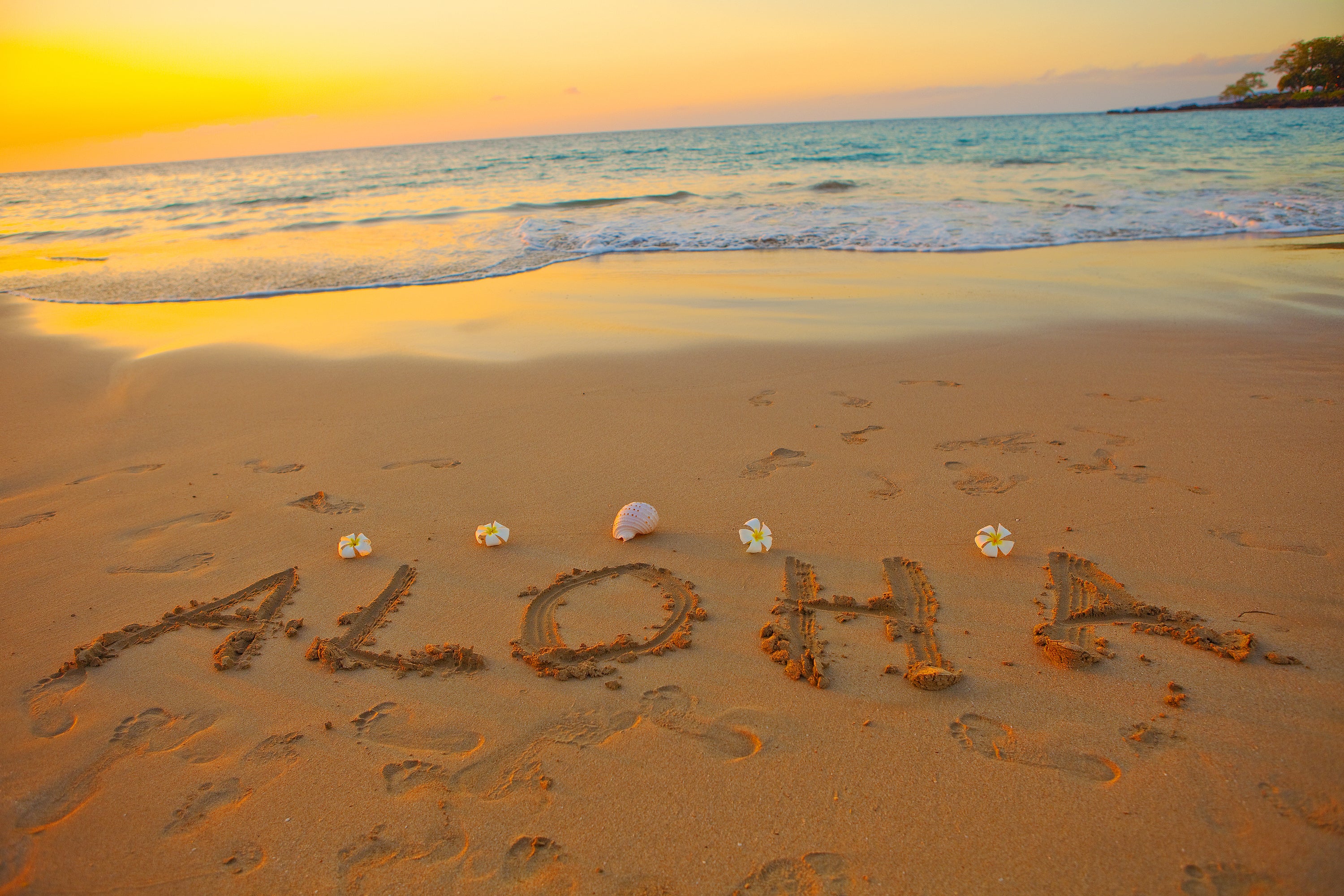You may have noticed that we recently redesigned our large bags! When thinking about what inspires us, we thought of something we are so lucky to enjoy as locals, Hawai'i's natural beauty! Hawai'i is known for it's biodiversity and breathtaking landscapes, and what better way to enjoy it than going on a hike? From the edge of Ko'olau's numerous ridge trails all the way down to the waterfalls in the valleys, we are blessed to have these sceneries at our fingertips.
What does hiking have to do with crackseed? Li hing mui translates to "traveling plum" in Cantonese and was made popular due to it's long shelf life and packability. Like many other cultures around the world, our ancestors sought ways to preserve fresh produce for consumption when harvest was not as plentiful or for when they were on the move. While the urgent need to extend the life of produce has lessened with the invention of refrigeration and other modern techniques, the art of preserving fruit through traditional crackseed methods lives on here at Jade! We work everyday to preserve crackseed culture and honor its origins, but instead of travelling across seas or vast landscapes, we are taking a 5 mile round trip to and from our car (arguably the most beautiful sight after a long hike) and eating some crackseed along the way so that we don't get hangry (basically the same thing).
While hiking, we can't help but stop and appreciate the flora and fauna along the way, which is why we decided to featured two native plants on our packaging that we wanted to bring attention to, the 'Ohi'a lehua (Metrosideros spp.) and Loulu (Pritchardia spp.) To learn more about these two native plants and how we can aid in their conservation, we connected with our friends at Seeds of Hawai'i. Seeds of Hawai'i is a UH Manoa Lyon Arboretum research unit that specializes in the repository for seed collections within the Hawaiian Archipelago and runs a plant extinction prevention program with over 35m + seeds of native plants within their bank. They helped us learn the following:
'Ohi'a Lehua is one of Hawai'i's most iconic and ecologically important trees. It plays a key role in watershed health, provides habitat for native birds and insects, and is a fire resistant species. That makes it especially valuable in strengthening our ecosystems against wildfires. While not officially listed as endangered, 'ohi'a faces serious threats from rapid 'ohi'a death (ROD), a fungal disease. We can support this species by planting them! Purchasing 'ohi'a from trusted native plant nurseries and incorporating them into home gardens or restoration projects helps preserve this species and supports Hawai'i's biodiversity. It is also important to collect and store seeds long-term for future conservation efforts, which is exactly what is being done at the Seed Conservation Lab.
The Loulu plant is Hawai'i's only native palm. They were once abundant across the islands but are now rare in the wild and listed as endangered. Major threats include habitat loss and invasive species like the coconut rhinoceros beetle. Unlike many seeds that can be safely stored in seed banks, Loulu seeds are "recalcitrant," meaning that they cannot survive drying or freezing. Because of this, conservation often relies on living collections and tissue culture propagation. By protecting existing populations and supporting conservation programs, we can help bring Hawaii's native palms back to the landscape!
What can we do to help?
- avoid the spread of invasive species or pathogens by cleaning shoes/gear when hiking
- supporting conservation groups and restoration projects working to protect them
- sharing knowledge and appreciation of these plants to sinpire others to care for them
-planting! if found at a native plant nursery
To learn more about Seeds of Hawaii, visit their website here: https://seedsofhawaii.org/
Instagram: @seedsofhawaii


